Science-Backed Supplements
-

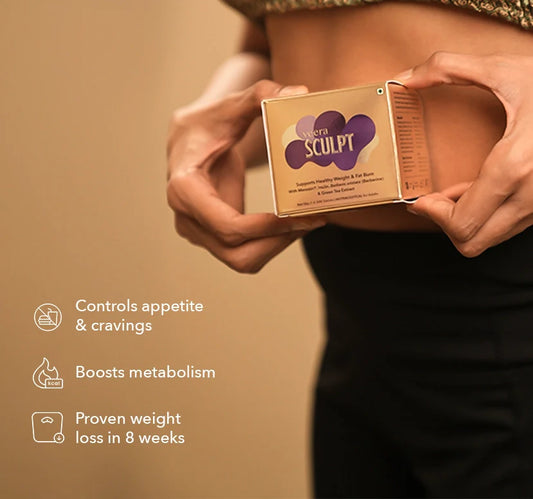
Sculpt (Fat Loss)
The next gen of plant-based weight loss is here
4.67 / 5.0
(254) 254 total reviews
Regular price Rs. 1,246.00Regular priceRs. 1,246.00Sale price Rs. 1,246.00 -

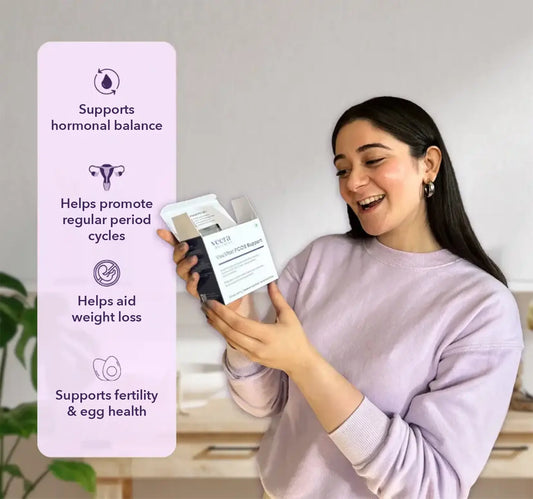
PCOS Support
Balance hormones & manage PCOS symptoms
4.74 / 5.0
(185) 185 total reviews
Regular price Rs. 845.00Regular priceRs. 845.00Sale price Rs. 845.00 -

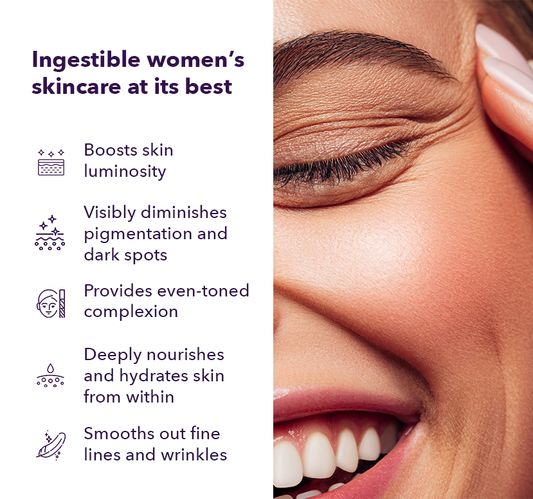
Luminize (Skin Glow)
Get youthful & radiant skin faster than ever before
4.8 / 5.0
(185) 185 total reviews
Regular price Rs. 1,230.00Regular priceRs. 1,300.00Sale price Rs. 1,230.00Sale -


Spark Plant Protein
Power up with plant protein enriched with Ashwagandha
4.71 / 5.0
(154) 154 total reviews
Regular price Rs. 828.00Regular priceRs. 828.00Sale price Rs. 828.00 -


Weight Loss Duo
Lose fat & boost energy with this perfect pair
4.76 / 5.0
(290) 290 total reviews
Regular price Rs. 2,830.00Regular priceRs. 3,300.00Sale price Rs. 2,830.00Sale
Shop By Goal
-

Weight Loss
Lose weight sustainably with clean GLP-1 boosting supplements & programs.
-

Sleep & Mood
Sleep deeply, wake up refreshed and feel alert all day.
As Seen In






































2L+ Happy Customers
-
"I've tried so many things to lose PCOS weight over the years - nothing worked until I used PCOS Support & Sculpt. Seriously love all your products!"
- Ananya, 29
-
"Living in London, I've tried many international brands but Veera is on another level. I got my periods and energy back with PCOS Support."
- Disha, 36
-
"I've been using Spark Protein for 5 months - it's incredible how much more energy I have now! I got more toned & nothing beats the chocolate taste."
- Tarini, 27
-
"My skin just glows with Luminize... I started taking it 2 months before my wedding - everyone noticed, including the photographer!"
- Sneha, 32
Women you love, love us
Why Choose Veera









We're naked to you
Our transparent clinical research proves we work hard for you. We’re the only women’s hormonal health company published in the American Society for Reproductive Medicine.
Our Doctors And Experts
-

Dr. Anuja Dokras
M.D., MHCI, PhD
Director, Penn Polycystic Ovary Syndrome Center, USA -

Dr. Mansi Verma
Gynecologist
MS, DNB (OB/GYN), BJMC, Pune (2017) & Diploma in Laparoscopy, Kiel Institute 2019 -

Dr. Neeta Rajani
Dermatologist
MD (Dermatology) 1985, Nair Hospital
D.V& D. Nair Hospital 1983
Head of Department of Dermatology at Dr R. N. Cooper Hospital -

Dr. Ruta Deshmukh
Gynecologist
MBBS, DGO, Fellowship in infertility ( icog )
Customer Faves
-


Sculpt (Fat Loss)
The next gen of plant-based weight loss is here
4.67 / 5.0
(254) 254 total reviews
Regular price Rs. 1,246.00Regular priceRs. 1,246.00Sale price Rs. 1,246.00 -


PCOS Support
Balance hormones & manage PCOS symptoms
4.74 / 5.0
(185) 185 total reviews
Regular price Rs. 845.00Regular priceRs. 845.00Sale price Rs. 845.00 -


PCOS Fat Burn Duo
Lose weight & manage PCOS with our bestsellers
4.79 / 5.0
(321) 321 total reviews
Regular price Rs. 1,900.00Regular priceRs. 2,000.00Sale price Rs. 1,900.00Sale -


Spark Plant Protein
Power up with plant protein enriched with Ashwagandha
4.71 / 5.0
(154) 154 total reviews
Regular price Rs. 828.00Regular priceRs. 828.00Sale price Rs. 828.00 -

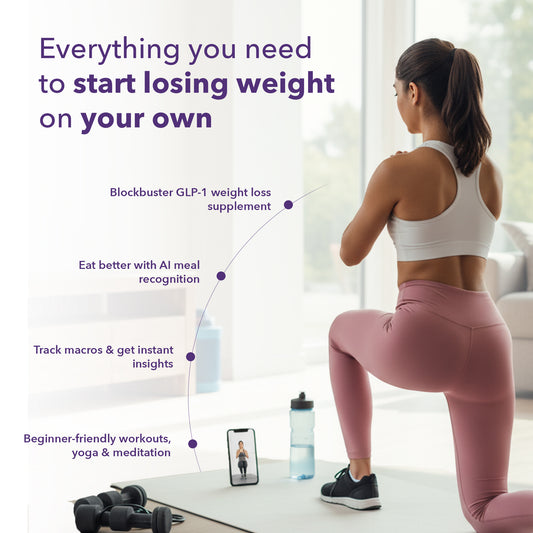
30 Day Self-Guided Weight Loss Program
Expert-led treatment for hormonal weight gain
4.84 / 5.0
(186) 186 total reviews
Regular price Rs. 2,400.00Regular priceRs. 3,429.00Sale price Rs. 2,400.00Sale -

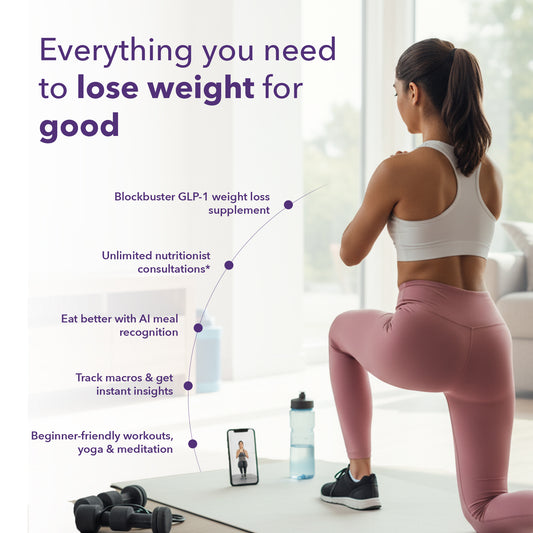
90 Day Expert-Led Weight Loss Program
Expert-led 90 day transformation
4.84 / 5.0
(186) 186 total reviews
Regular price Rs. 10,450.00Regular priceRs. 11,000.00Sale price Rs. 10,450.00Sale -


Weight Loss Duo
Lose fat & boost energy with this perfect pair
4.76 / 5.0
(290) 290 total reviews
Regular price Rs. 2,830.00Regular priceRs. 3,300.00Sale price Rs. 2,830.00Sale





























